[ad_1]
For people who’ve ever wished to take care of sawflies all through the yard, you acknowledge what a headache these pests is prone to be. Eventually your plant’s leaves are wanting inexperienced and sturdy. Then, with out warning, you’ve obtained ugly, brown, chewed-up leaves everywhere. In my yard, the zinnias are the nearly really victims.
Sawflies, and extra considerably, their larvae, is prone to be terribly harmful all through the yard. Fortuitously, with barely information of how these bugs perform, we’re able to decrease the harm they set off to our treasured vegetation.
What are Sawflies?
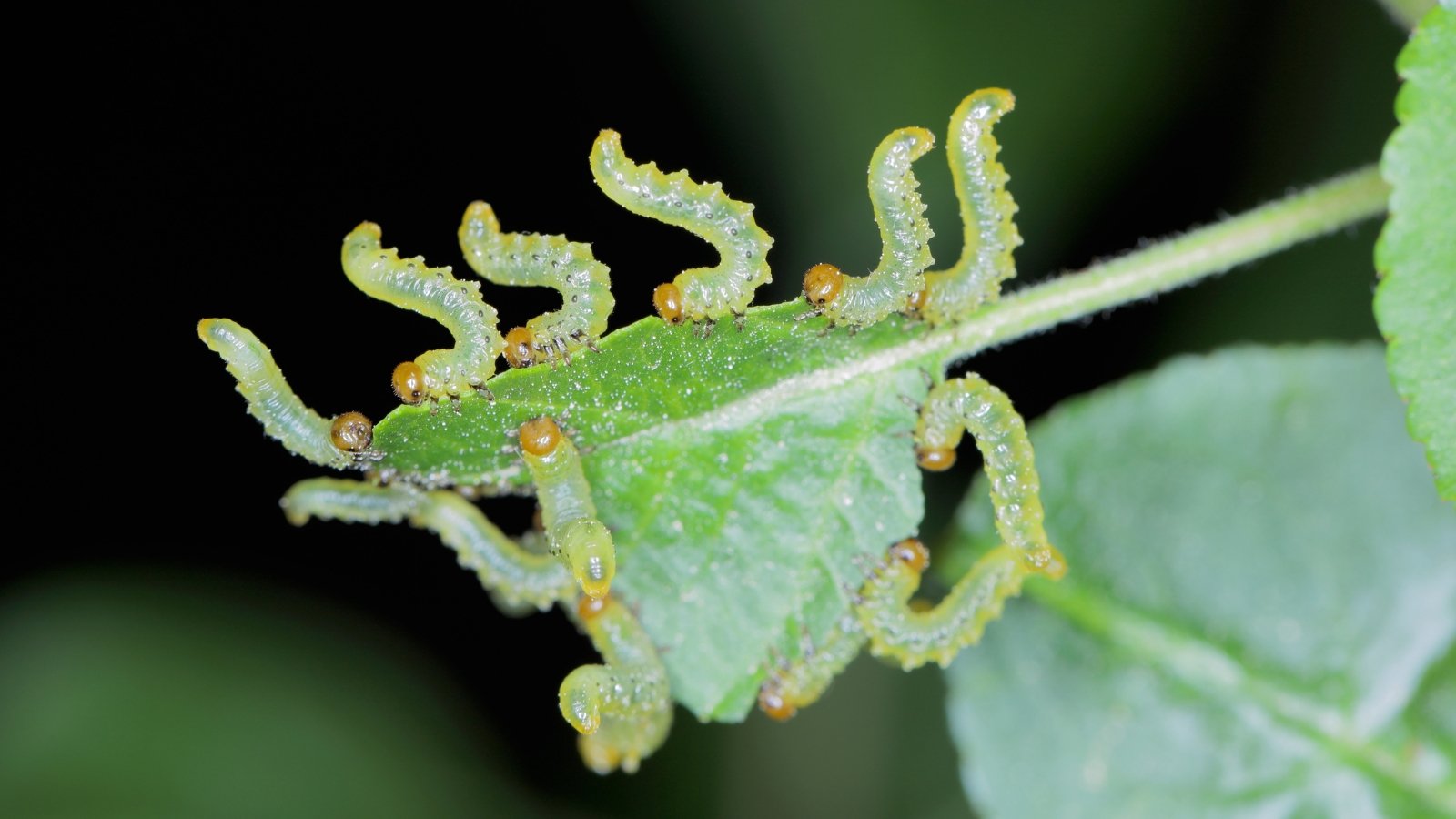

Sawflies are a bunch of bugs associated to bees and wasps. They get their title from the kind of their egg-laying physique half, which seems to be like a noticed. Though they’re non-stinging, this saw-like ovipositor resembles a stinger.
Sawfly larvae intently resemble caterpillars. Nonetheless, they’re smaller usually, hardly rising larger than one inch extended at maturity. The Elm sawfly can develop as rather a lot as two inches extended. It’s these larvae which is able to do quite a few harm to your vegetation. A bunch of those bugs can defoliate a plant shortly.
These bugs maintain for for for much longer of their larval stage than adults. They’ll maintain as rather a lot as one yr altogether, with just one interval hatching in a yr’s time. Some species overwinter all through the soil as eggs or as pupae in cocoons.
Copy
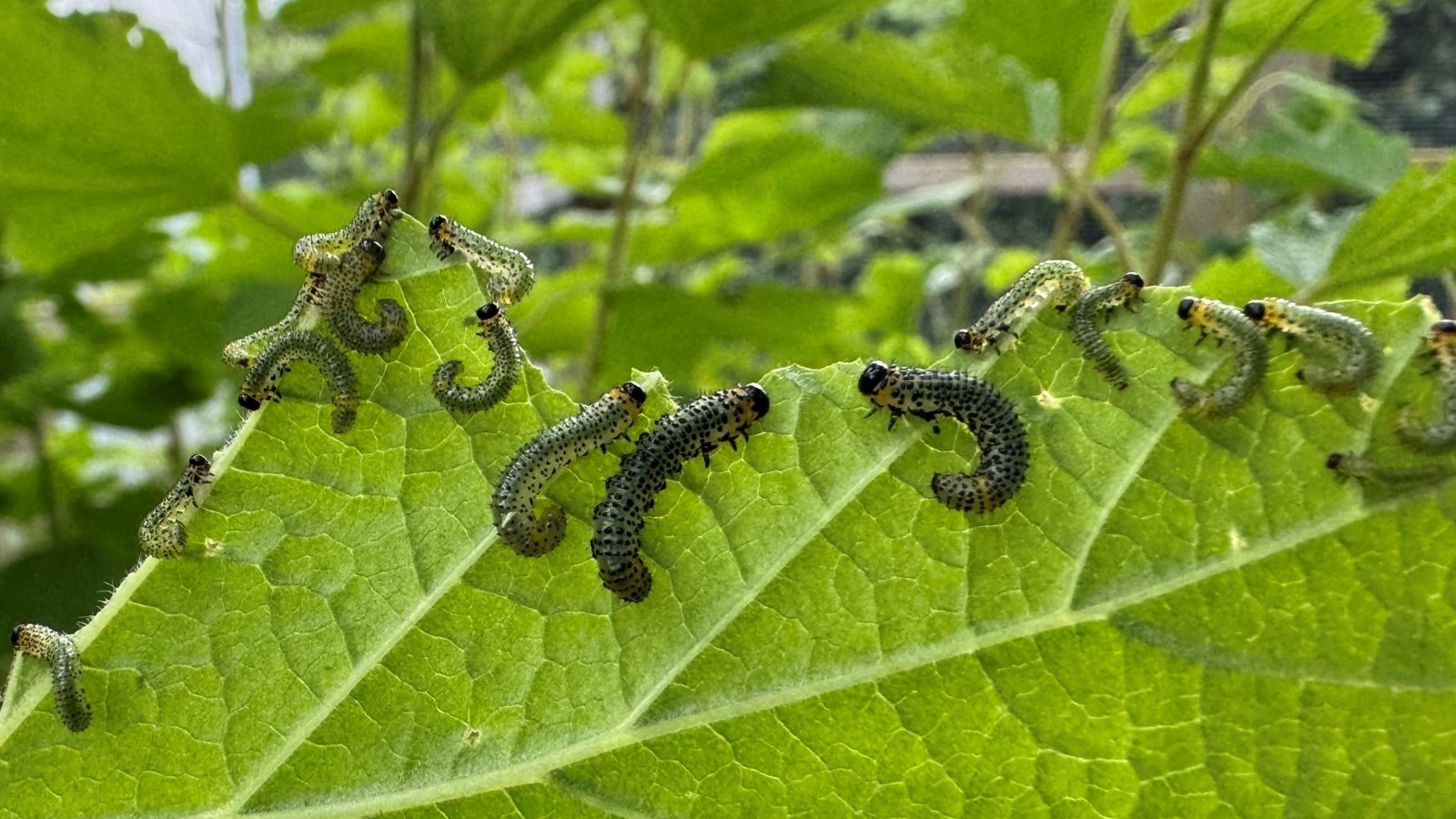

The grownup feminine sawfly makes use of her ovipositor to chop into leaves to deposit eggs. Most sawflies are feminine, with solely the bizarre male. Many species are parthenogenetic, which means that they don’t want males to breed. As adults, these bugs maintain a extraordinarily quick time. Most maintain just a few days of their grownup state.
The variety of eggs {{{that a}}} feminine can lay depends upon upon the species. Some will lay just one egg per leaf, whereas others can lay as rather a lot as 100. The hatching time varies by species, as appropriately. Primarily, it takes two to eight weeks for the eggs to hatch.
Why Are They Dangerous For Crops?
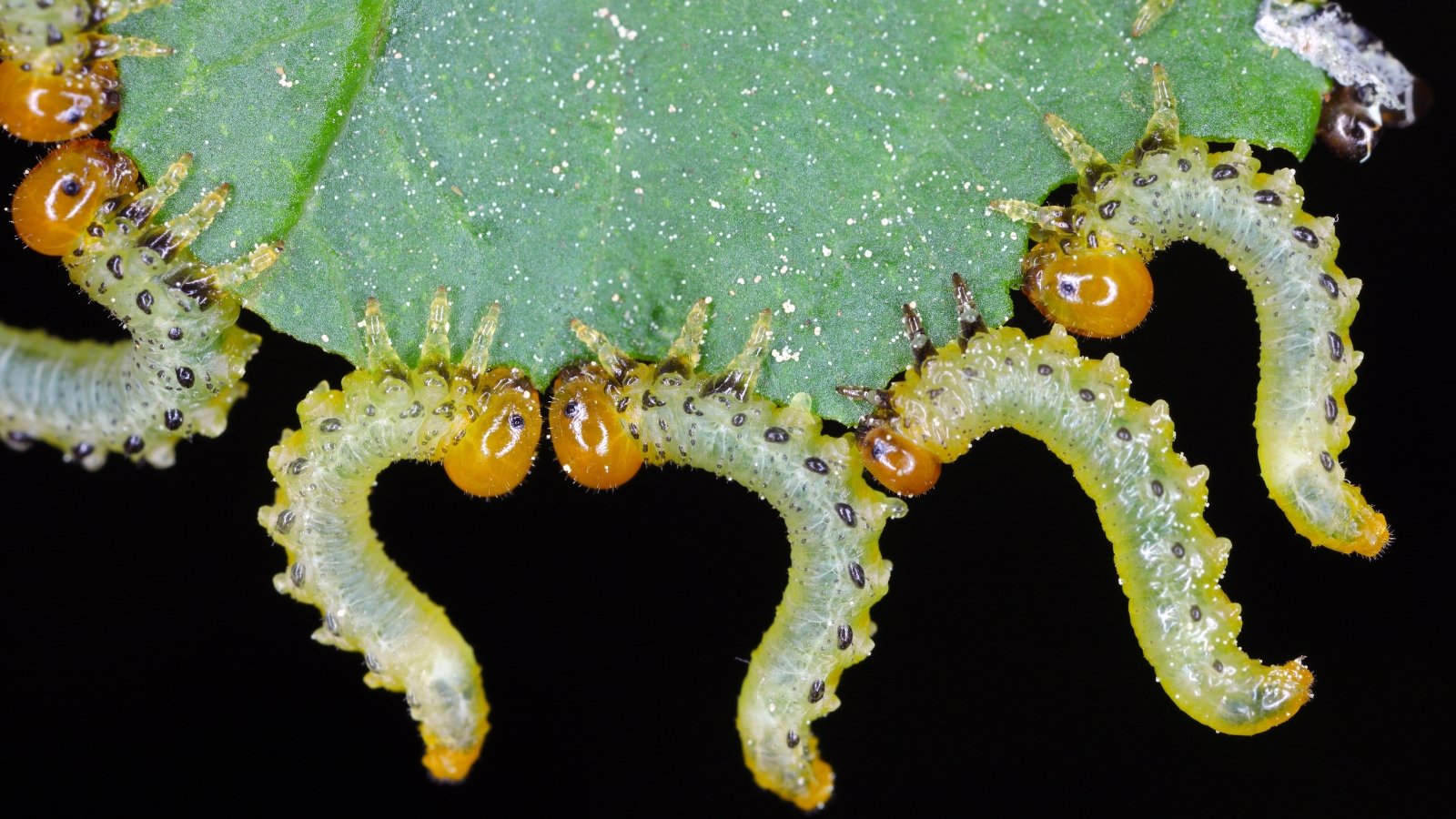

In a phrase, defoliation. I’ve seen a bunch of those little guys take down an unlimited zinnia plant in a single day. One morning the leaves are perky and inexperienced, and the following, they resemble tattered brown lace. It’s not a fairly sight, and it could possibly be very discouraging to see this occur to your yard.
Fully completely completely different species set off totally completely various kinds of hurt. Some will chew all the leaf all the way in which during which all the way in which all the way down to the midrib, whereas others eat the tissue between the veins of a leaf. Pine sawflies need to eat earlier pine needles. Leaf miners feed on tissue between leaf surfaces.
The quantity and severity of hurt depends upon upon the variety of bugs and the scale of the plant. An enormous plant is prone to endure solely magnificence harm. An enormous group can totally decimate a smaller plant.
How To Determine
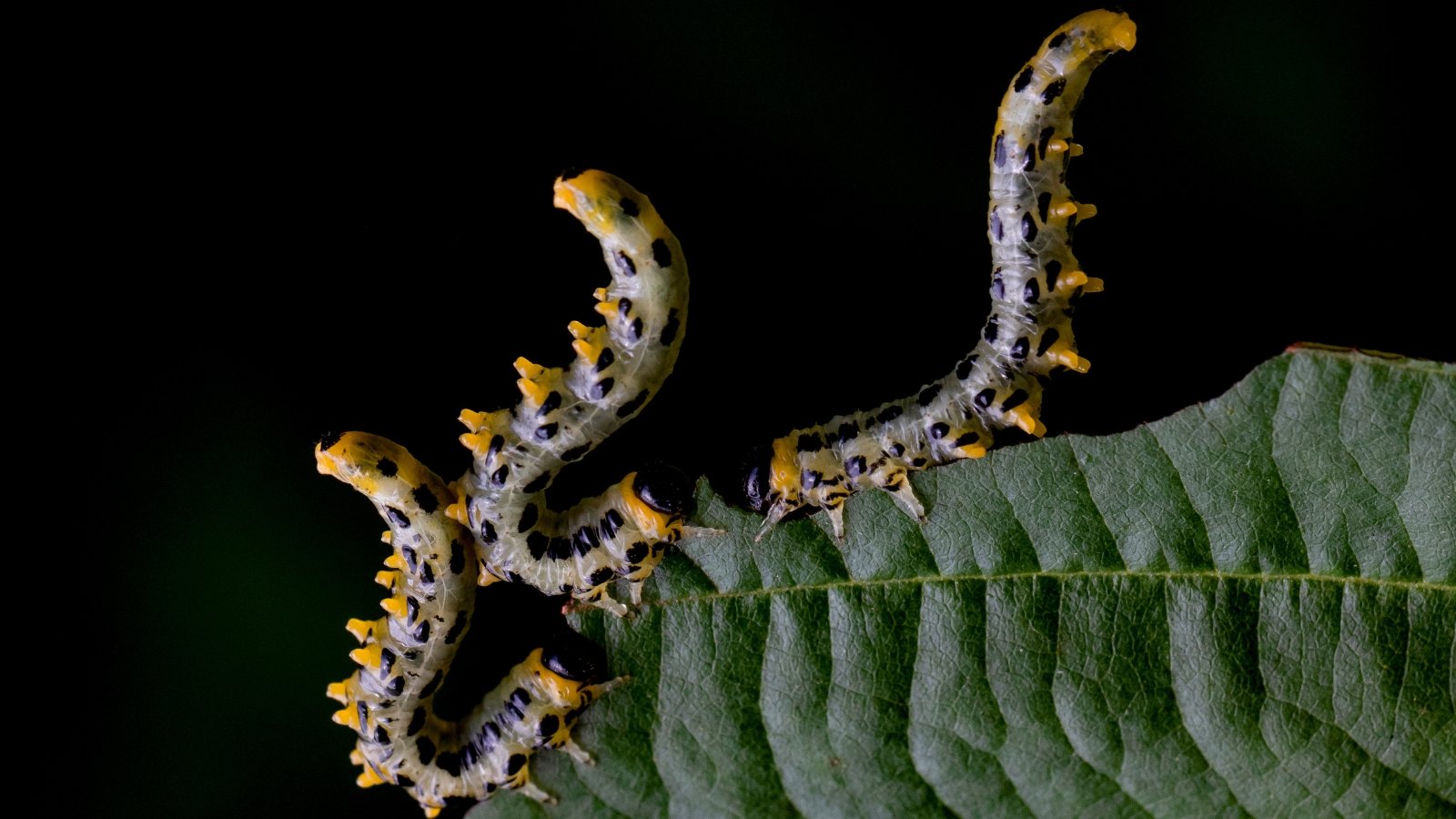

The adults are solitary and inconspicuous. They seem like small, stingless wasps. Figuring out sawfly larvae is pretty easy. They seem like tiny caterpillars and sometimes feed in giant teams. When disturbed, a bunch of larvae might rear as soon as extra, elevating up the doorway of their our our our bodies. This usually is a security mechanism to frighten off predators.
It’s straightforward to look out these pests as their harm is often apparent to the attention. They’ve an inclination to stay on the underside of the leaves they feed on. Turning over {{{a partially}}} eaten leaf will normally reveal a bunch of those little larvae.
Traits
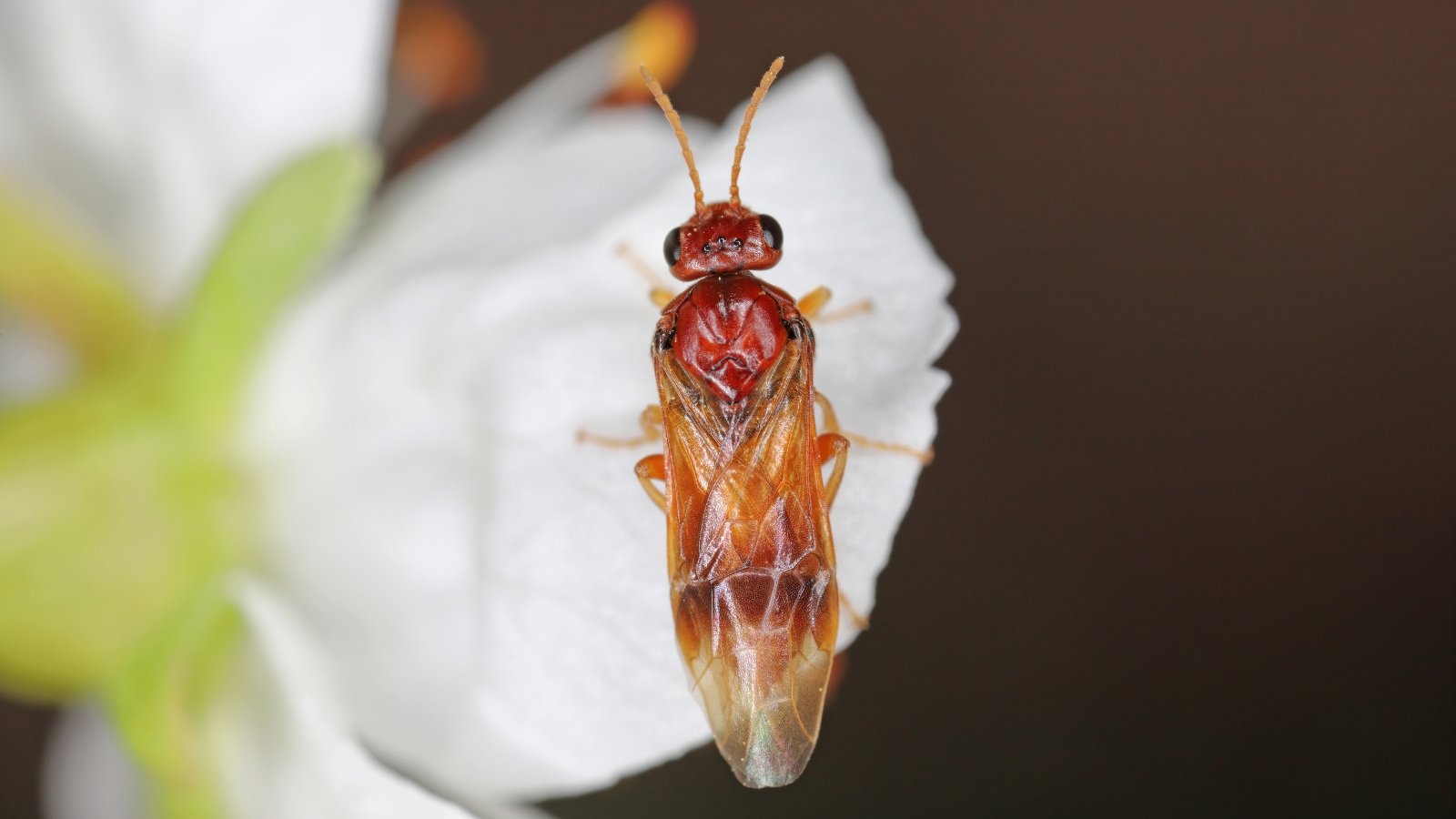

Grownup sawflies seem like small wasps. The principle distinction of their look is their midsection. Pretty than having an outlined waist like a wasp, they’re column-shaped, in regards to the equal width from finish to finish.
They’ve giant, separated eyes and two pairs of wings. The wings are clear with veins. The hindwings are all the time smaller and shorter than the forewings. Their ovipositor, the egg-laying tube on their as soon as extra finish, is saw-shaped and resembles a stinger.
Whereas it’s unusual to see the adults, you is prone to be very inclined to establish sawfly larvae in some unspecified time eventually, in your yard. These widespread pests are straightforward to find out as they normally seem in teams. Fully completely completely different species’ larvae have barely totally completely completely different appearances.
The larvae resemble caterpillars, however comparatively than 5 or fewer pairs of prolegs, these bugs have six pairs. These small worm-like larvae have totally completely completely different colorations which correspond to their species. They’re usually clear with no hair and about one inch extended as soon as they’re full-grown.
Indicators of Harm
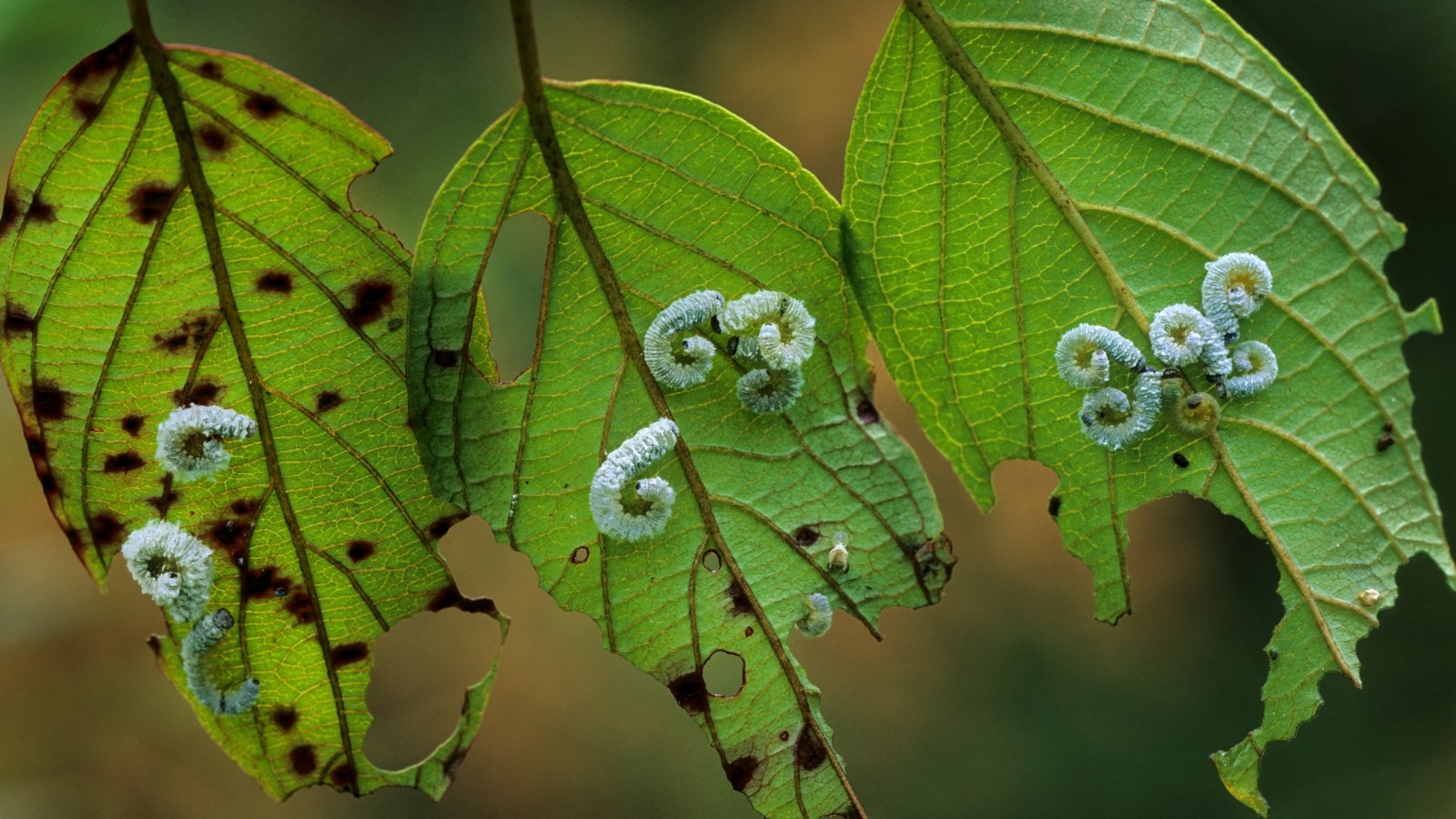

The harm accomplished by sawfly larvae varies in response to the species and is wide-ranging. Typically, these bugs will eat leaf tissue in between veins, leaving the appears of home house home windows. They could skeletonize full leaves, which is able to flip white and eventually brown. They’ll furthermore mine the leaves, inflicting them to roll up or curl, leaving a white pathway the place they’ve been.
Some sawfly species feed on conifers. They initially feed on the bottom of the needles. It will current as discolored needles, normally brown and straw-like. They’ll devour full needles as they mature. On smaller vegetation, they’re going to set off untimely leaf drop. They are going to normally eat all leaves or needles on a division prior to shifting on.
7 Methods to Cope with and Take away
Whereas a sawfly infestation gained’t normally kill an unlimited plant, it might probably perhaps do quite a few harm to smaller ones. It may additionally depart some ugly harm, even on larger vegetation and bushes. Now that everybody is aware of what to hunt for, let’s converse relating to the choice routes of coping with sawfly larvae. The earlier you tackle these pests, the higher. As a beekeeper and avid pollinator gardener, I all the time advocate for non-insecticidal strategies at any time when potential.
Hand Eradicating
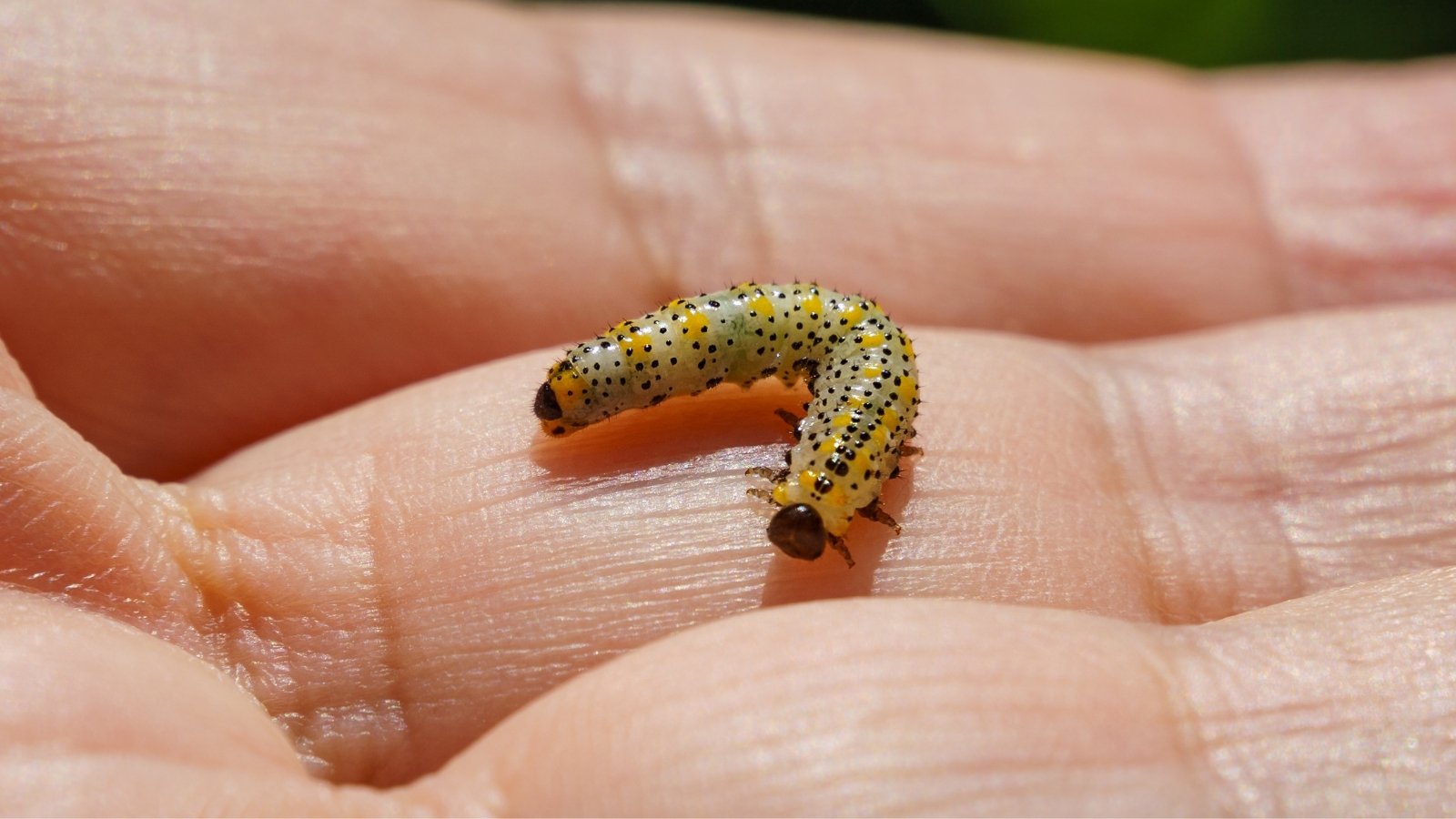

For people who cope with to catch the problem early, hand elimination is an easy methodology to knock these guys out. For people who stroll out into the yard one morning and see a skeletal leaf with little larvae on the underside, pluck it off. Make it doable for to do away with it away out of your completely completely different vegetation.
Check out beneath neighboring leaves, as appropriately. Within the occasion that they’ve virtually achieved with the plain ones, a variety of of them have in all probability moved on. Check out beneath the leaves all through the encircling space and choose off any larvae you see.
It’s an excellent suggestion to squish these you pull off. I’m not good at doing this with my arms, so stepping on them will do. Tossing them elsewhere all through the yard merely transfers the issue to a particular plant.
Make it doable for to take care of watch over that space of the yard all through the approaching days. Take away one other larvae that you just merely uncover. Various of those bugs can’t do fairly a bit harm. Nonetheless, the a lot much less larvae left all through the yard, the a lot much less adults there shall be to put additional eggs.
Pruning
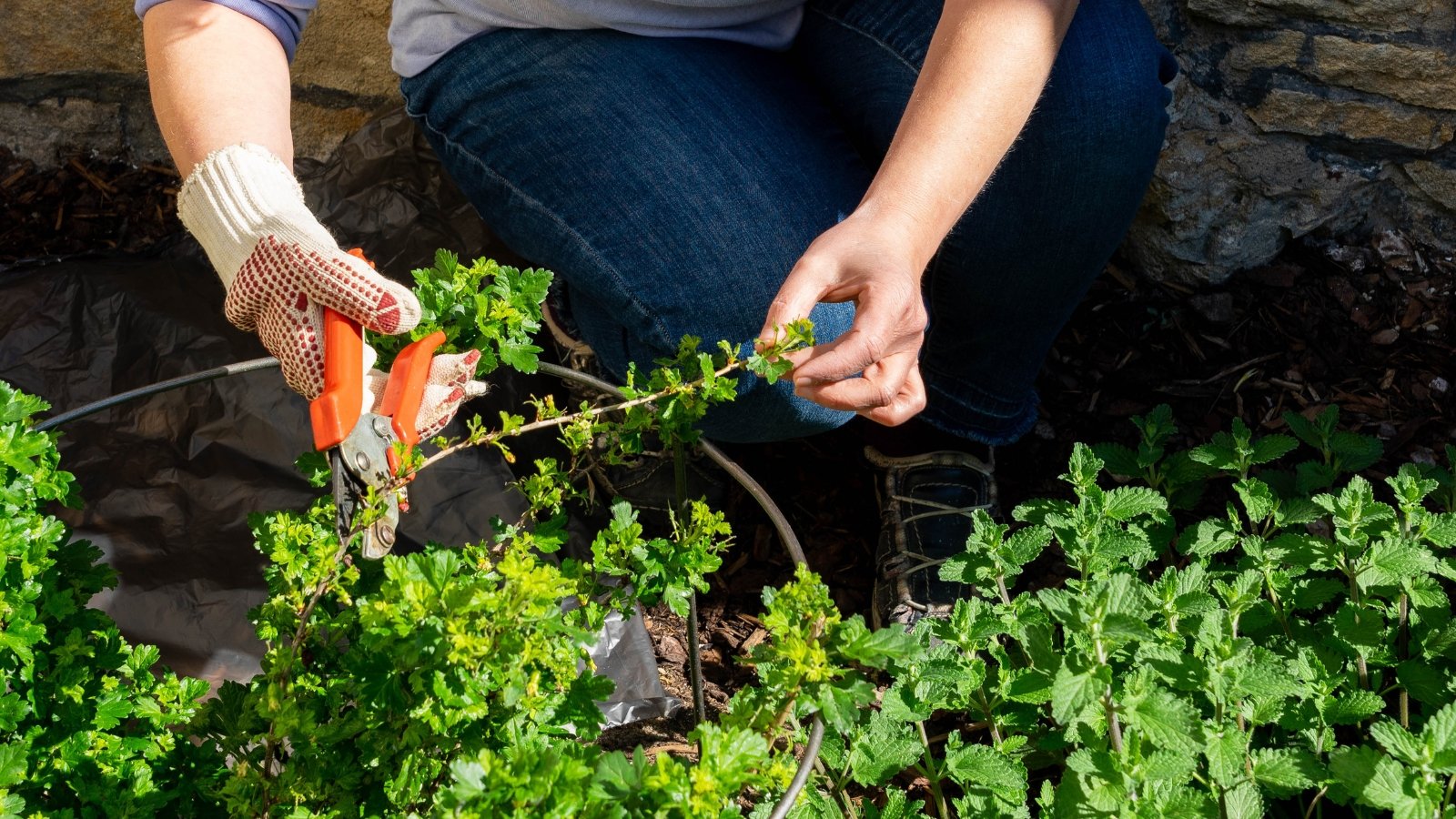

If the infestation is earlier the intention the place hand elimination is beneficial, it’s possible you’ll want to succeed in in your pruning shears. That is in all probability not probably the greatest methodology for a lot of who’re coping with smaller vegetation. It really works finest on shrubs and bushes.
Sawfly larvae feed collectively in teams, which makes them a bit simpler to cope with. For people who uncover giant elements of affected foliage, it’s an excellent suggestion to take away them. It’s bigger to take away increased than it’s worthwhile to comparatively than rather a lot a lot much less. Make it doable for, as quickly as further, that you just merely do away with these plant elements away from completely completely different vegetation. Destroy them at any time when potential to kill the bugs.
Spray with Water
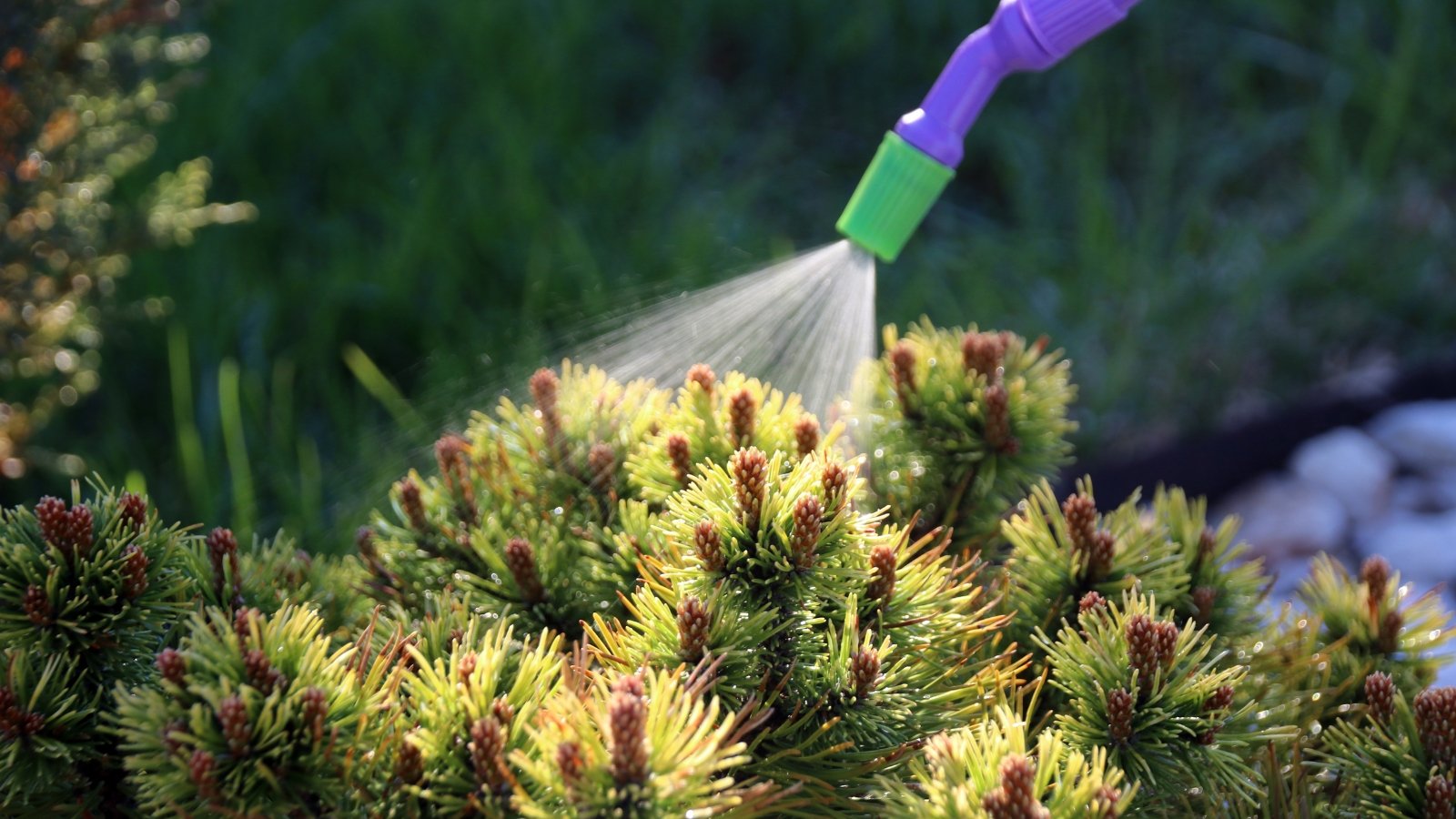

It couldn’t sound very setting pleasant, however you are able to do away with a lot of these little pests with water. A strong stream from the hose will knock a major variety of them off of the plant. As rapidly as they’re on the underside, they gained’t crawl as soon as extra up onto the plant.
For people who do that constantly, you is prone to be prone to forestall a great deal of the harm that these guys can do. I don’t advocate this technique on smaller vegetation, nevertheless, as you may harm the plant all through the course of.
Pure Predators
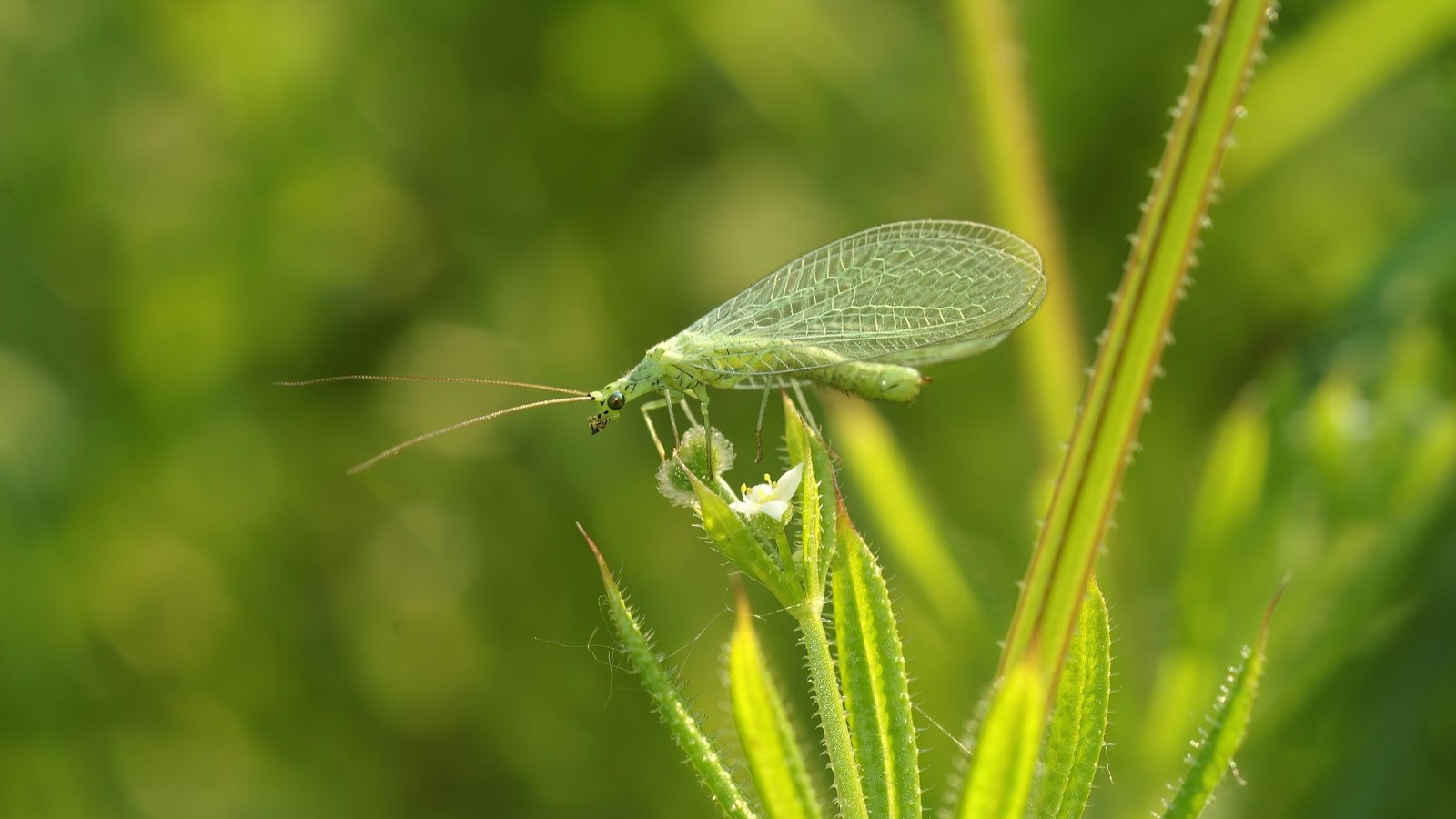

For individuals who need to solid off these guys and maintain them gone, entice predators to the yard. Various bugs want to make a meal of sawfly larvae. Flooring beetles, lacewings, and ladybugs all eat these pests and gained’t set off one other harm in your yard.
Grownup lacewings are straightforward to draw to the yard. They feed on pollen and nectar, so they are going to be drawn to sources of those meals. Their larvae will feast on the sawfly larvae fairly fortunately.
Grownup ladybugs are omnivores, and they also’re drawn to pollen-rich flowers. They significantly like flowers that develop in umbels, suppose Queen Anne’s lace or yarrow. Furthermore they eat completely completely different bugs, and their larvae are carnivorous, voracious predators.
Flooring beetles, one completely different predator of sawflies, are drawn to areas the place they’re going to uncover shelter all by the day. Mulch and leaves on the underside will present them with a spot to cowl. Furthermore they like moisture.
Diatomaceous Earth
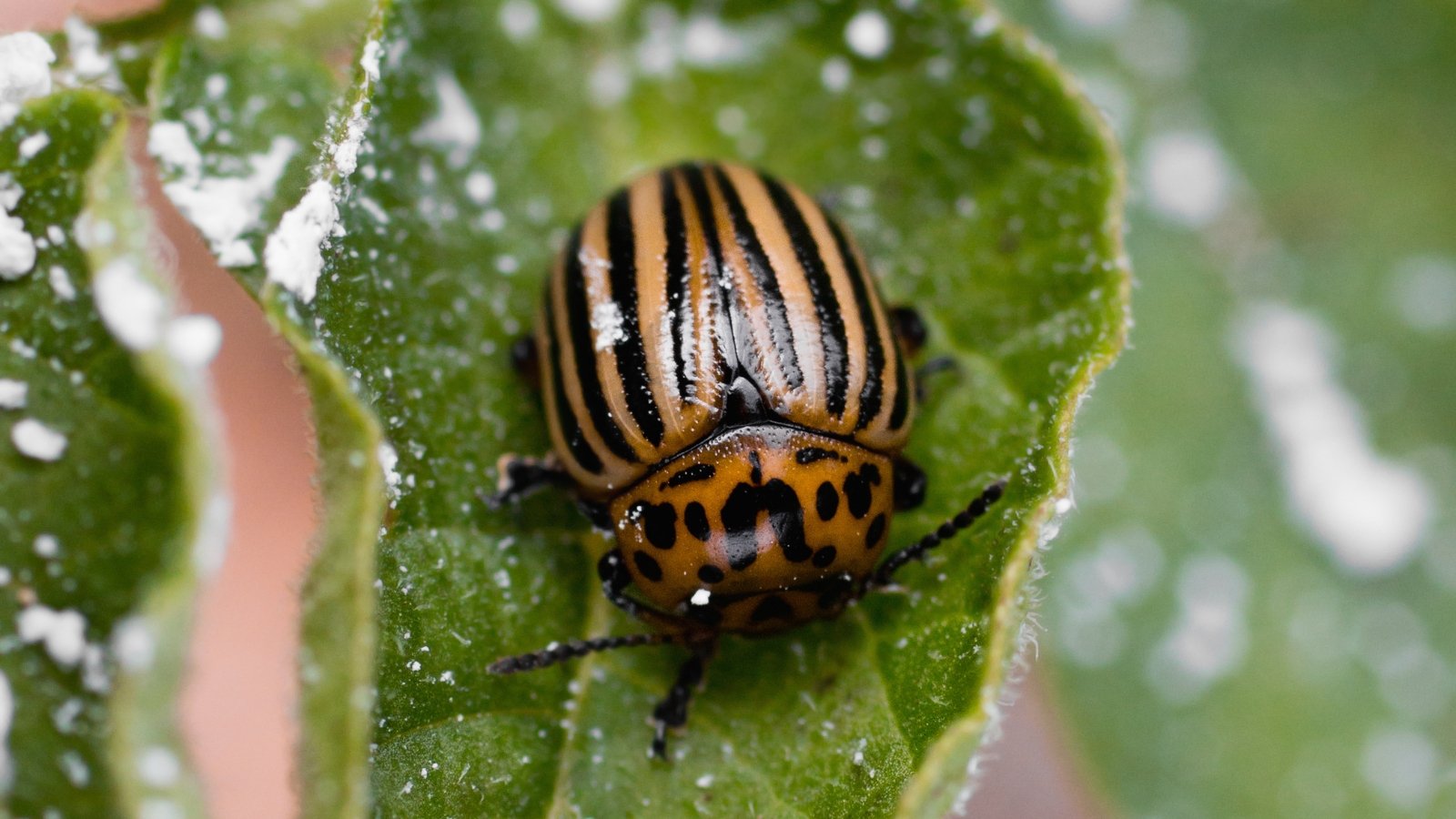

Diatomaceous earth is a powder created from the crushed skeletons of fossilized aquatic organisms. When bugs crawl by way of it, it damages the outer layer of their our our our bodies and would possibly kill them shortly.
Mud the underside of leaves with diatomaceous earth to do away with virtually any infestation. It’s best to make use of a puffer or a turkey baster to utilize a skinny coating of this powder. It’s protected for people and animals, too.
Nonetheless, inhaling the powder could set off respiratory components. Watch out, and avoid inhaling the mud. The one disadvantage to this technique is that the DE must maintain dry. It doesn’t work appropriately in humid climates. Reapply after rain.
Kaolin Clay
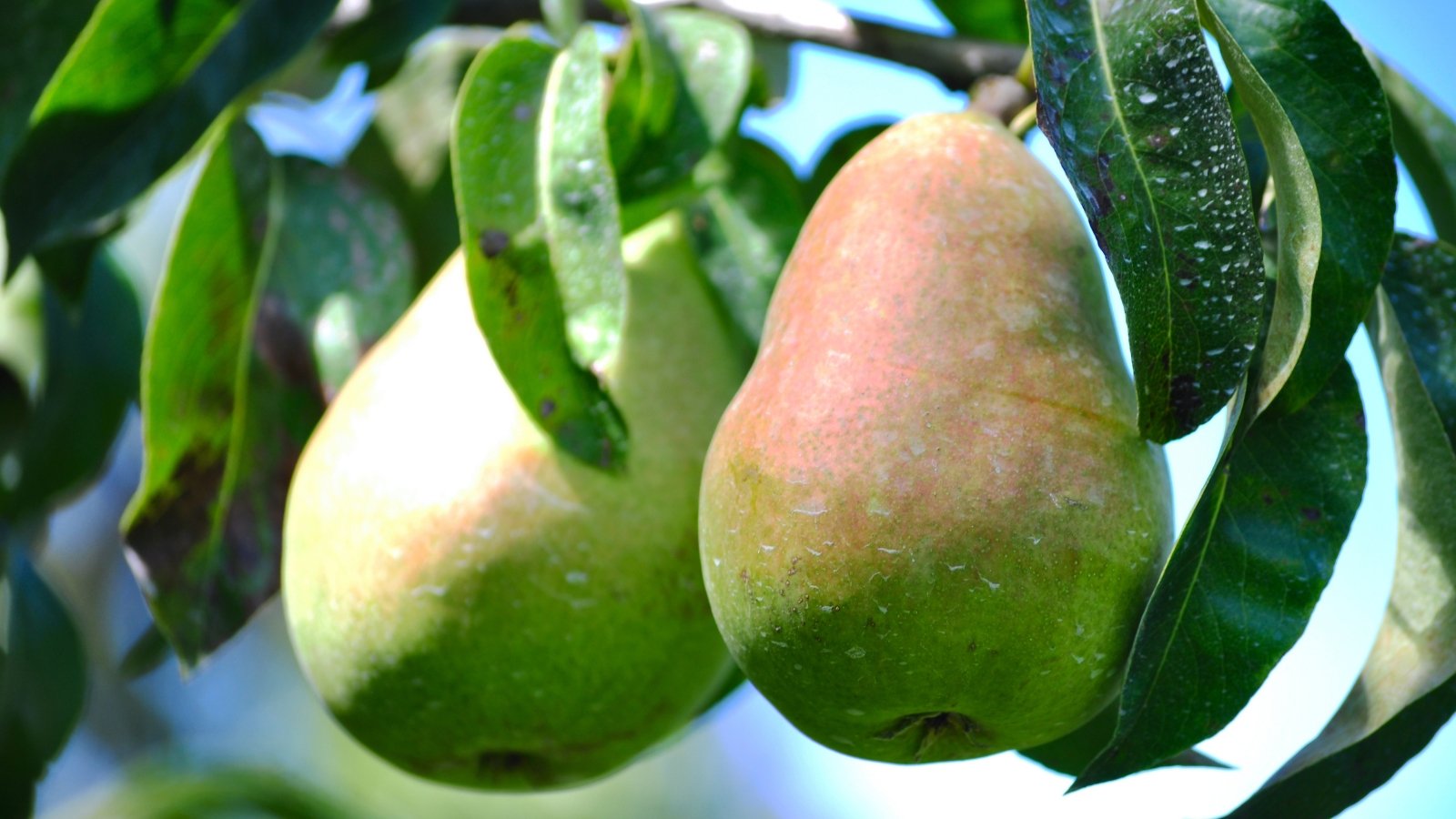

Kaolin clay is one completely different pure methodology to discourage pests out of your vegetation. Combine this excellent powder with water and spray the reply in your vegetation as a barrier. It might effectively deter bugs from consuming the leaves and laying eggs.
This sometimes is a laborious therapy, as it’s possible you’ll should reapply it after a heavy rain. It’s pure and certainly not dangerous to people and pollinators, although, so I want to recommend this over pesticides.
Horticultural Oil and Insecticidal Cleaning cleansing cleaning soap
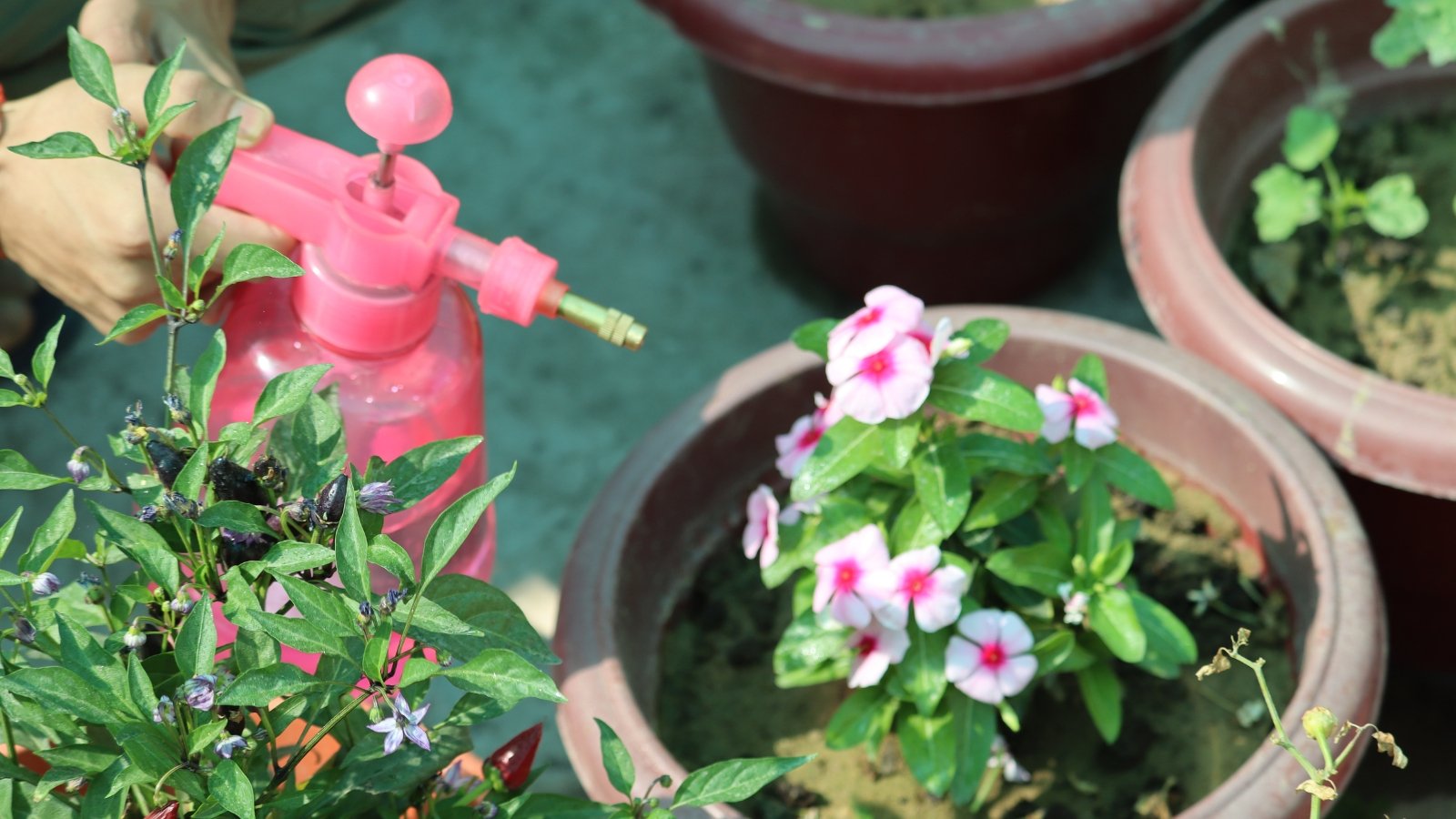

The utilization of horticultural oil, insecticidal cleaning cleansing cleaning soap, and neem oil is setting pleasant in combatting sawflies and their larvae. Due to these would possibly harm your vegetation and harm useful bugs, use them solely as a final resort. They’re furthermore not good for people, so avoid contact if potential.
Spray these merchandise all through the night to chop down on pollinator contact. A skinny mist is ample. You don’t want your vegetation to be dripping with oil. Repeat this therapy as rapidly as each week to 10 days till you don’t see any signal of the bugs anymore.
Contact residual pesticides are merchandise that maintain setting pleasant for an prolonged time. Whereas they are going to get rid of your pest components, I don’t advocate them. These merchandise are dangerous to useful bugs, together with pollinators and potential sawfly predators. They’re furthermore not protected for human contact.
How one can Forestall Sawfly Infestation
Treating these pests is feasible, however what if we’re able to forestall them all through the primary place? Appropriately, it is perhaps not foolproof, however there are undoubtedly strategies by which we’re able to make an effort. If we shield our vegetation right from the beginning, we’re able to forestall sawflies or decrease the harm they’re going to do. Only a few of these strategies are type of the equal because of the therapy choices.
Encourage Pure Predators
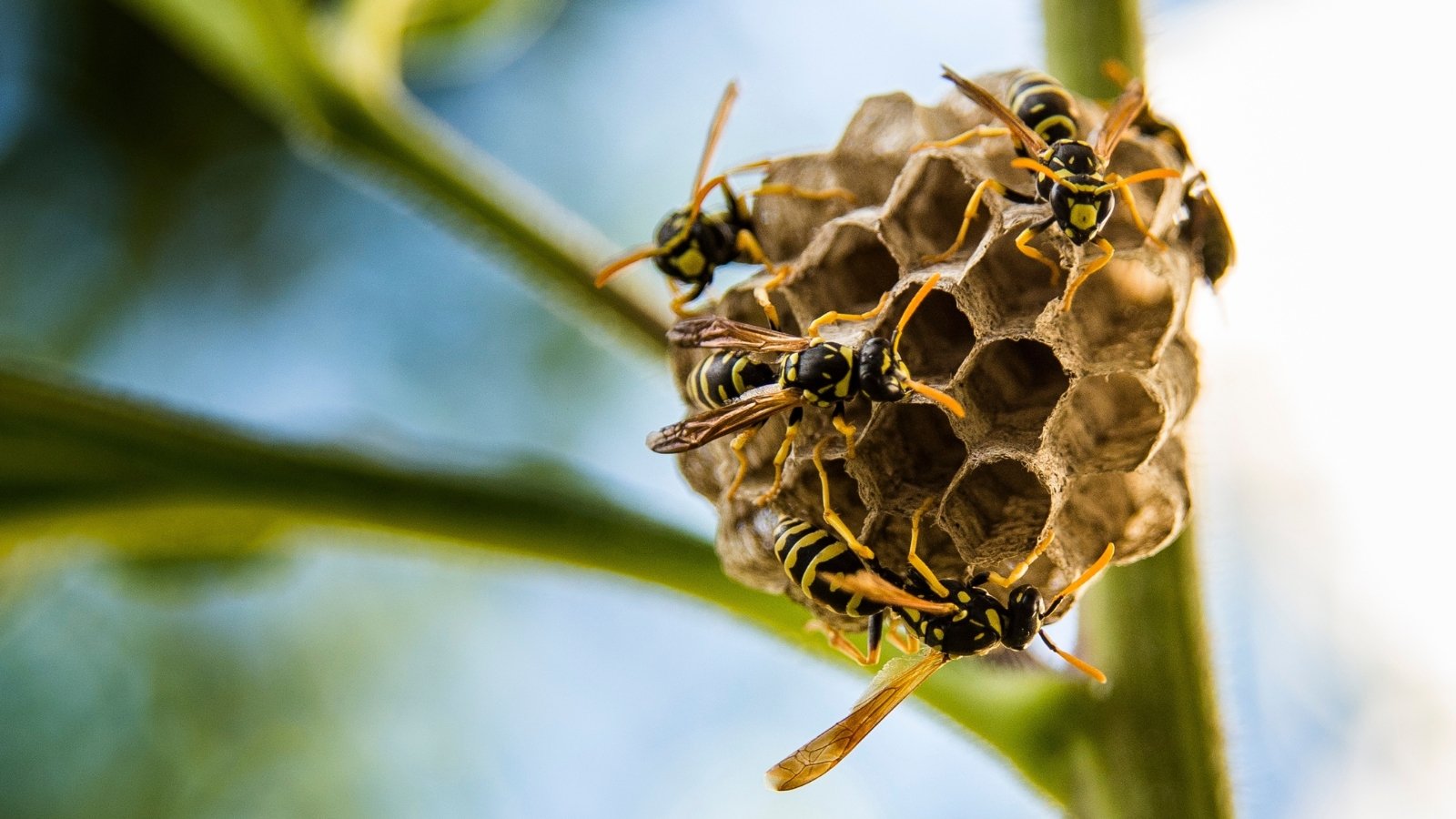

That is all the time my first advice for conserving away yard pests. A lot of the pests that eat our vegetation are meals for the larvae of assorted bugs. By attracting these bugs to the yard, we’re able to head off populations of pests on the chase.
Filling your yard with quite a lot of meals for the grownup bugs will ship them to your yard. They reproduce the place they know they’re going to each feed themselves and their larvae. Present these bugs with a great deal of flowering vegetation that present nectar for vitality and pollen for protein. Wasps are furthermore pure predators of sawflies, so avoid spraying wasp nests if potential.
Have a look at Crops Usually
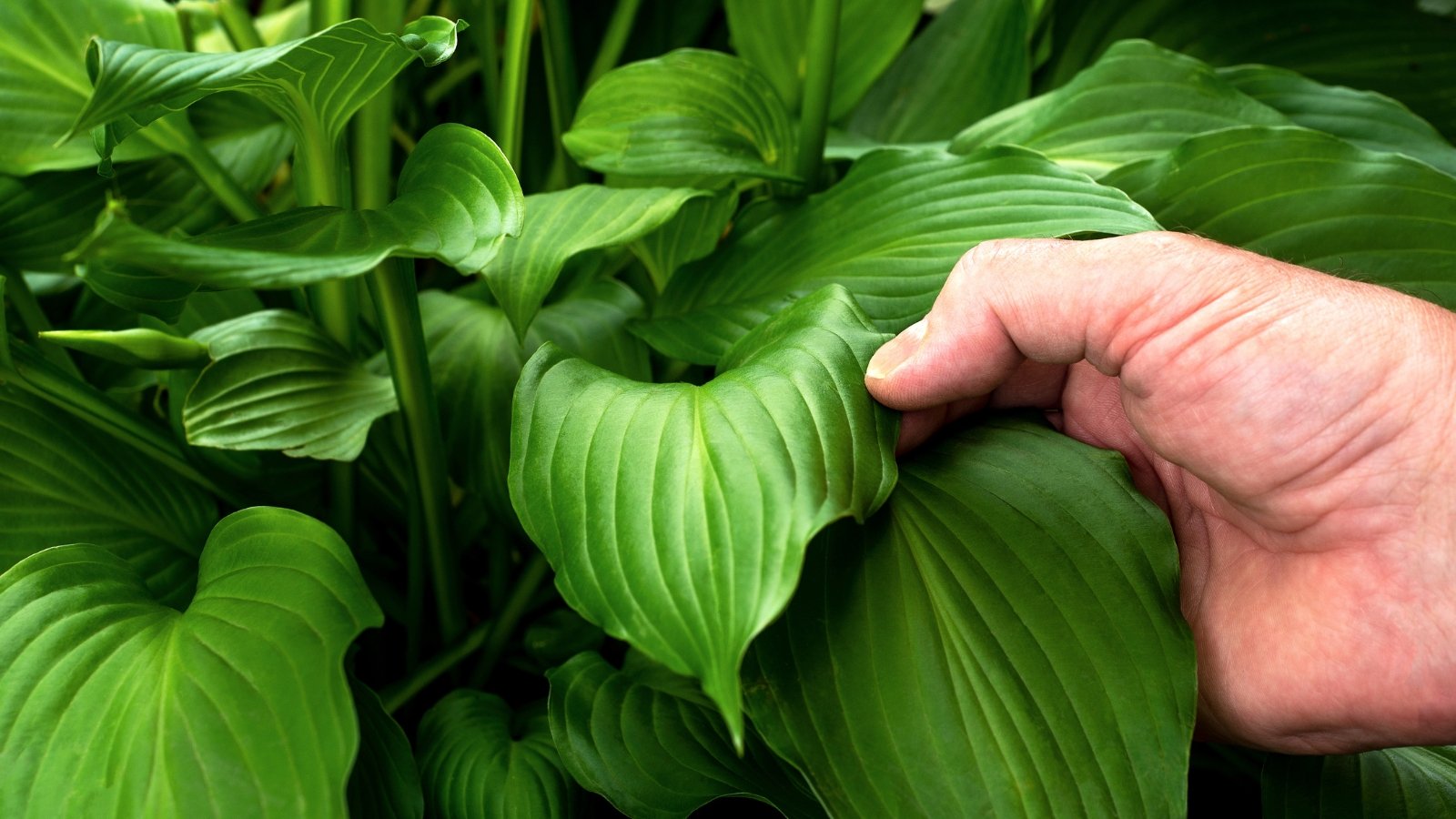

By anticipating sawfly larvae, you may head them off on the punch, so to talk. Take note of the leaves of your vegetation spherical May and early June. That is after they hatch and would possibly start to feed. For people who can arrange their harm at an early stage, will perhaps be simpler to take away them bodily and cut back their harm.
Address the Soil
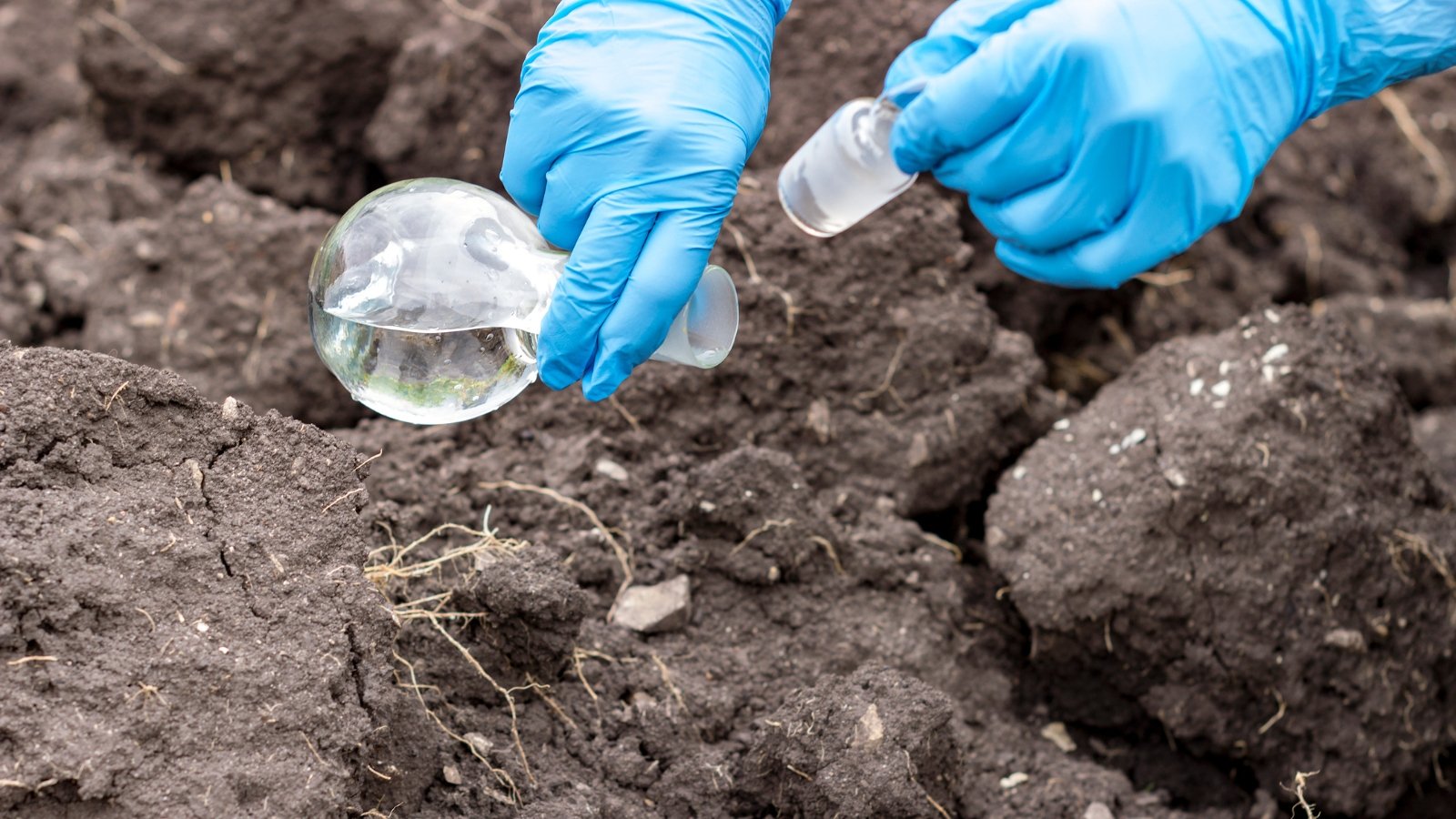

Grownup sawflies overwinter all through the soil. for a lot of who can deal with the soil and head them off prior to they’re going to emerge and lay eggs, you may considerably decrease the issue. This does embody drenching the soil with an insecticide, akin to dinotefuron. Sadly, this may additionally harm overwintering pollinators like bumblebees, beetles, and moths that hibernate all through the flooring.
Enhance Soil Properly being


Enhancing soil properly being will enhance the ultimate properly being of your vegetation. Sturdy vegetation are bigger in a position to tolerate some insect harm. By sustaining an primary healthful ambiance all through the yard, you may assist your vegetation. Healthful soil is a gigantic half of encouraging a healthful biome all through the yard.
Select Native Crops
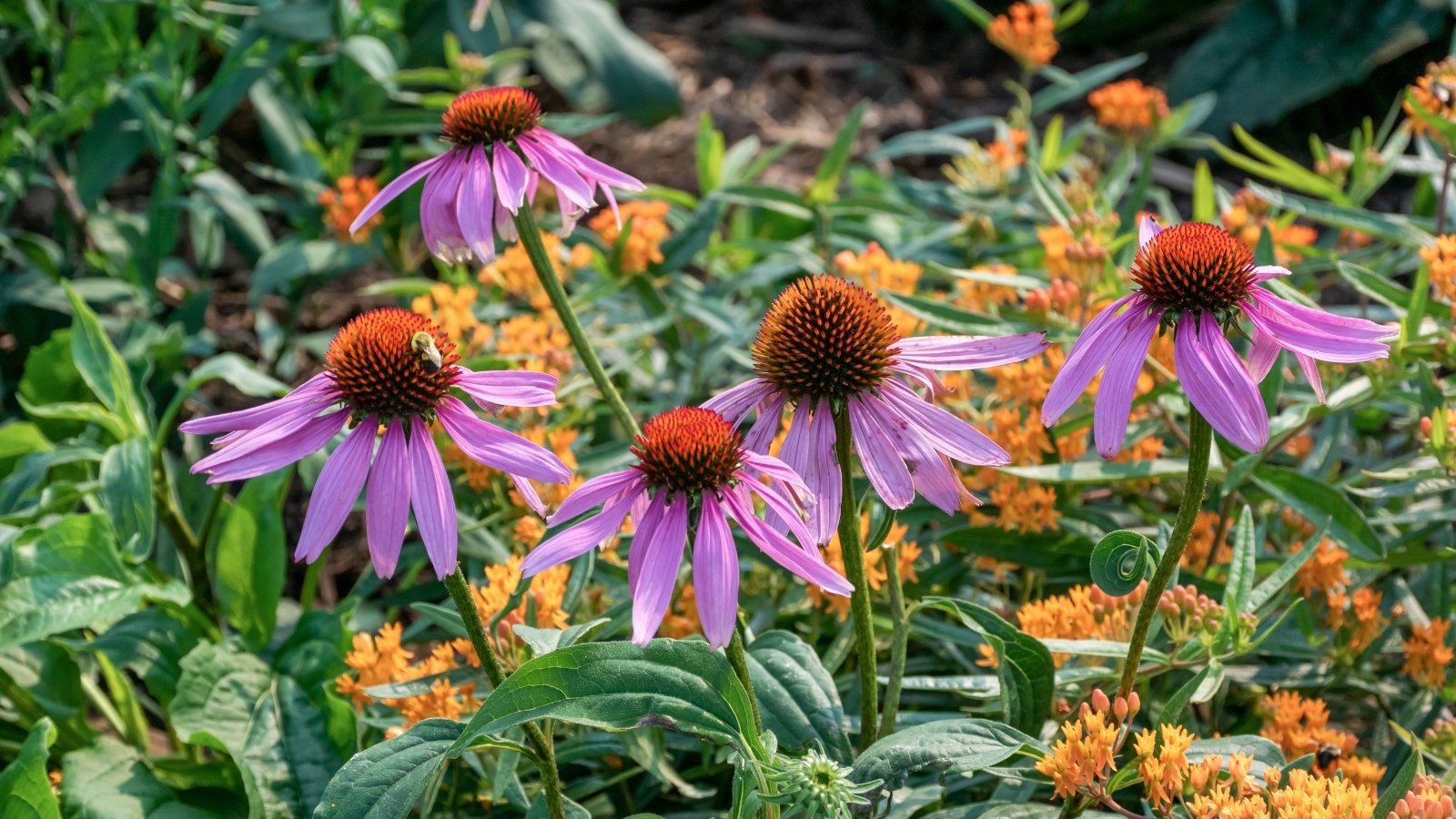

Native vegetation are people who develop naturally in your ambiance. These vegetation are tailored to the pests and illnesses which is prone to be current, and ensuing from this reality, they stand as rather a lot as these bigger. Many are large attractants for useful bugs of all kinds: pollinators, predators, and extra. Native vegetation require rather a lot a lot much less care primary. As quickly as further, healthful vegetation are additional able to tolerating some pest harm.
Plant Entice Crops


Entice crops are vegetation which is prone to be significantly participating to pests. By planting these shut by, you may draw many pests away out of your completely completely different vegetation. This works with many yard bugs. Nonetheless, many kinds of sawflies are considerably drawn to on the very least one express type of plant.
I uncover that the sawfly larvae in my yard go straight for the zinnias. One issue about these extremely efficient leaves must enchantment to them. Zinnias can bounce as soon as extra merely from sawfly feeding too.
Use Weed Barrier
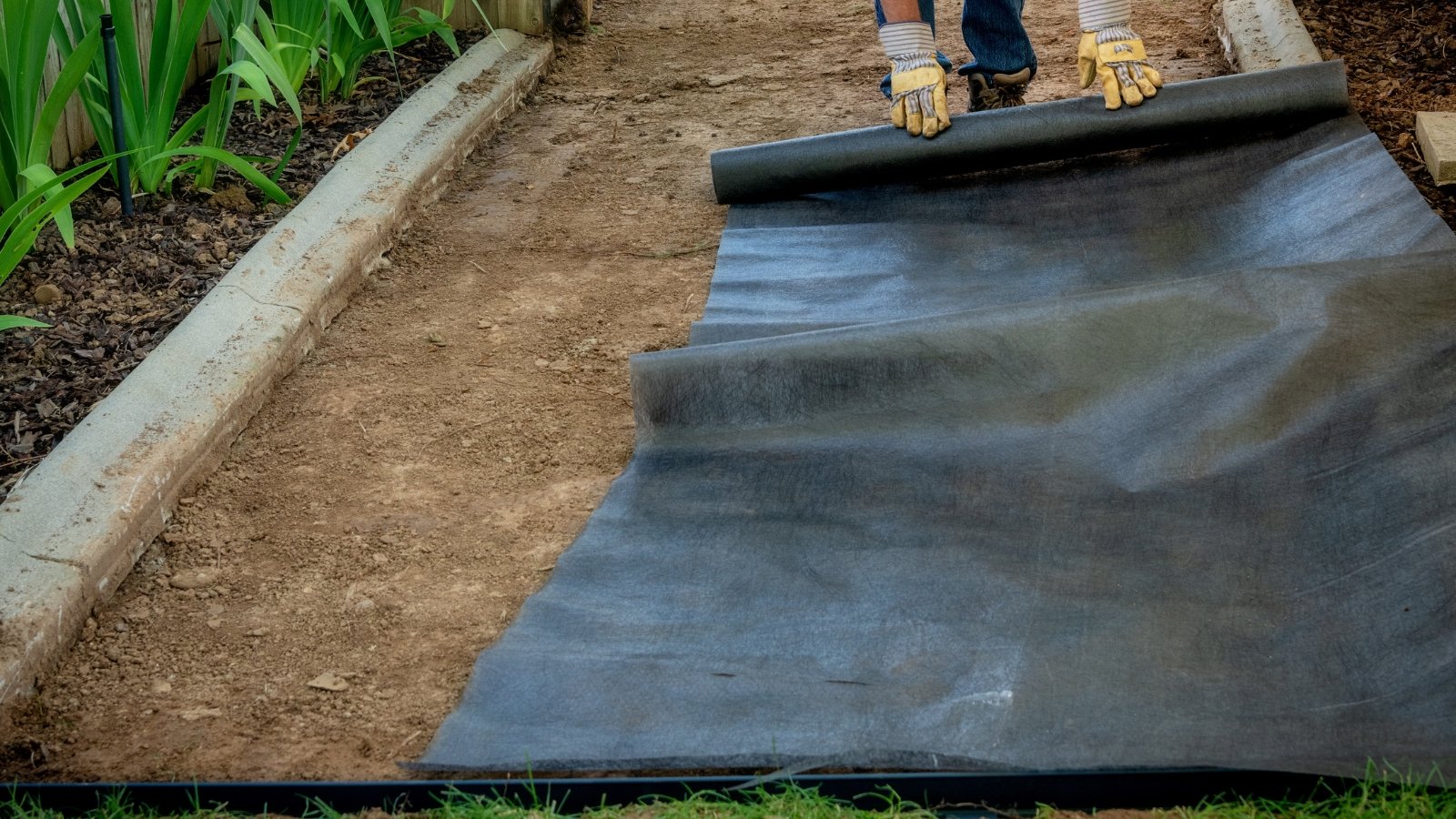

Since grownup sawflies maintain all through the soil, you may create a barrier between them and your vegetation utilizing weed supplies. Weed limitations assist with any bugs that maintain or reproduce all through the soil. It makes it more durable for the bugs to go looking your vegetation all through the primary place.
Shield Primary Plant Properly being


Sustaining primary plant properly being by watering and fertilizing precisely is no doubt one of many biggest security within the route of pests. It’s troublesome to fully forestall pests with out utilizing pesticides. Since these can harm useful bugs, they aren’t good for the yard primary.
Hydrated vegetation which have entry to the right dietary nutritional vitamins will develop optimally. Healthful vegetation will rebound sooner and endure rather a lot a lot much less primary from insect harm.
Remaining Ideas
Discovering your vegetation broken by insect infestation is prone to be terribly discouraging. Understanding suggestions on straightforward strategies to arrange widespread yard pests is the first step in eradicating these components. For people who can arrange sawfly larvae all through the yard, you may cope together with your vegetation precisely to cut back the harm launched on by these little pests.
[ad_2]
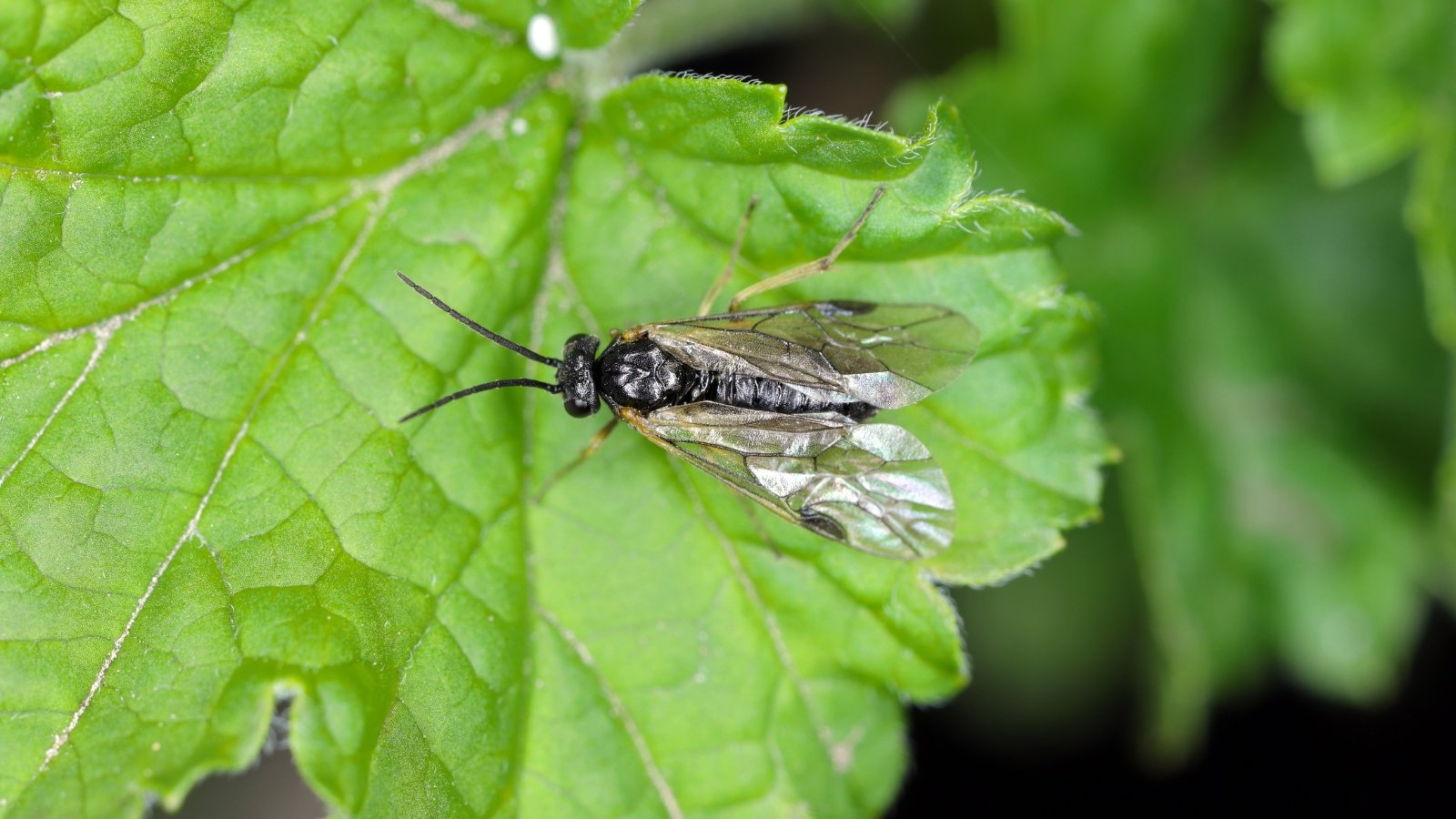
This article provides a thorough overview of sawflies and their impact on gardens. It’s interesting to learn about the various methods of control and prevention. I appreciate the emphasis on non-insecticidal strategies.
I found the section on natural predators particularly useful. Attracting beneficial insects seems like a sustainable way to manage sawflies without resorting to harmful chemicals, which aligns with my gardening philosophy.
The advice on encouraging native plants is insightful. I’ve always believed that selecting the right plants can significantly reduce pest issues. This article reaffirms that notion and provides practical tips for maintaining plant health.
The detailed description of sawfly larvae is helpful for identification purposes. I’ve had issues with these pests in my garden before, and knowing how to spot them will certainly aid in management efforts.
I appreciate the focus on environmental considerations when dealing with pests like sawflies. It’s crucial to find a balance between managing pests and protecting pollinators, and this article addresses that effectively.